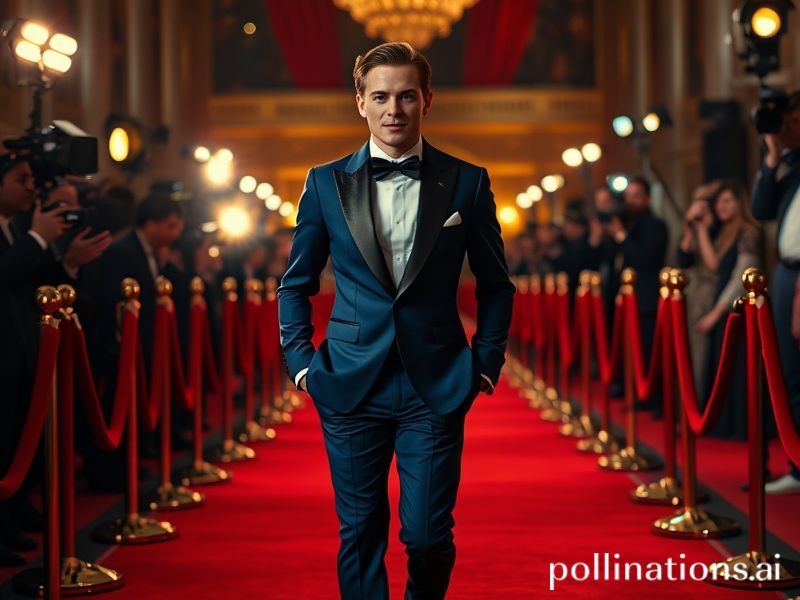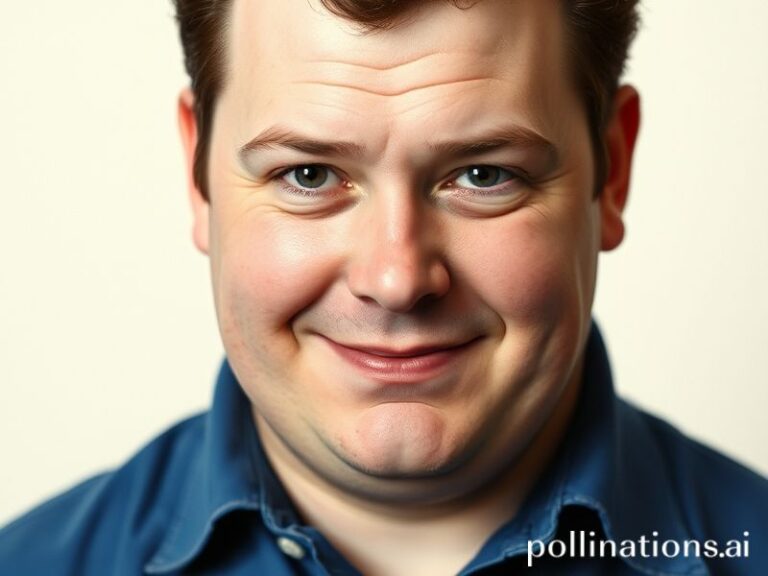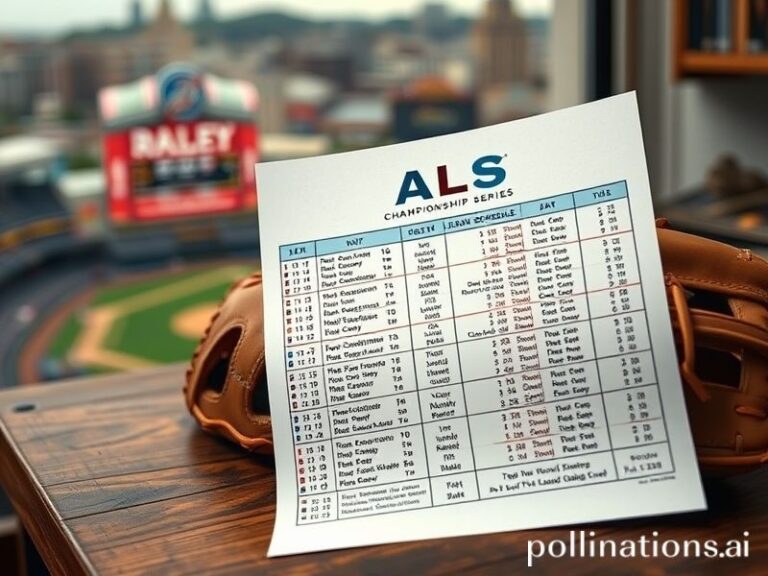Grant Show: The Surprising Global Currency of Nostalgia You Didn’t Know You Needed
Grant Show: The Last American Export Anyone Still Wants
By our correspondent in the lobby bar of a five-star hotel whose name changes every six months for tax reasons
PARIS—While the rest of the United States busies itself exporting inflation, culture wars, and inexplicable TikTok dances, one product remains stubbornly in demand on the international luxury market: Grant Show. Not the man—though he is, by all accounts, agreeably moisturized—but the phenomenon: the perfectly preserved 1990s television heart-throb who now functions as a kind of geopolitical comfort blanket for anyone old enough to remember when “binge” meant a weekend in Monaco, not a Netflix spiral of self-loathing.
Europeans discovered Grant Show the way they discovered oat milk: skeptically, then all at once. First came the ironic Berlin warehouse parties where Melrose Place played on grainy CRTs while DJs mixed techno with the show’s saxophone soundtrack. Then came the sincere retrospectives in Lisbon art-house cinemas, where audiences sighed nostalgically at the sight of pre-9/11 Los Angeles, a city that still believed its own tan. By the time Netflix launched Melrose in 4K across 190 countries, the French were already debating whether Jake Hanson was a postmodern critique of late-capitalist masculinity or simply a man who looked good wet. (Consensus: both.)
The global appetite for Grant Show—let’s call it “Grant Show” the way one speaks of “French Champagne” or “Swiss neutrality”—has become a minor but revealing economic indicator. When the ruble wobbles, Russian oligarchs still bid on original Melrose Place shooting scripts at Sotheby’s. When Seoul’s youth unemployment spikes, viewership on Korean streaming platforms for old American soaps jumps 17 percent, an uptick the Bank of Korea now tracks under the unofficial metric “nostalgia hedging.” Analysts at Goldman Sachs have even coined the “Grant Show Index,” measuring the premium wealthy foreigners will pay for anything that reminds them of a time when America exported fantasies rather than tariffs.
Meanwhile, the actor himself has become an accidental diplomat. Last spring, Show appeared—unbilled, unbothered—at a climate summit in Dubai, sipping club soda beside a Qatari prince who confessed he learned English from Dynasty reruns. A week later he was in Davos, where a hedge-fund manager asked him to autograph a vintage PalmPilot. “I thought he’d be taller,” the manager muttered, sliding the device into a hermetically sealed pouch. Show, ever gracious, signed anyway. Soft power, like collagen, requires maintenance.
Of course, the world being what it is, there are darker readings. In Beijing, state media has begun using Melrose Place as a cautionary tale: Look what happens when individual desire is allowed to run amok—everyone ends up crying in a pool house. The EU Parliament briefly considered banning reruns during election cycles, fearing Jake Hanson’s hair might constitute illegal foreign interference. And at least one Nigerian scam ring now poses as Grant Show on Instagram, DMing divorcees in Frankfurt with promises of offshore romance and vintage convertibles. The con works; the longing is real.
Yet perhaps the most poignant commentary comes from the man himself, who recently told a reporter in Milan that he sometimes feels like “the last Blockbuster video on Earth—obsolete but weirdly comforting.” He was wearing a cashmere sweater the color of old money. Behind him, a billboard advertised a luxury watch whose slogan read: “Time you can trust.” Irony, like Grant Show, travels well.
Conclusion: In an era when nations weaponize nostalgia, Grant Show remains the rare soft-power commodity no one feels compelled to tariff. He is both time capsule and flotation device, proof that the global elite will pay anything to remember a moment when their biggest worry was whether Amanda would steal Billy from Alison. The planet may be on fire, but somewhere in a penthouse overlooking the Bosporus, a billionaire is cueing up Season 3, Episode 14, and for forty-three commercial-free minutes, the world is 1995 again, the water is still blue, and nobody has invented the phrase “supply-chain disruption.” If that isn’t a diplomatic achievement, what is?







